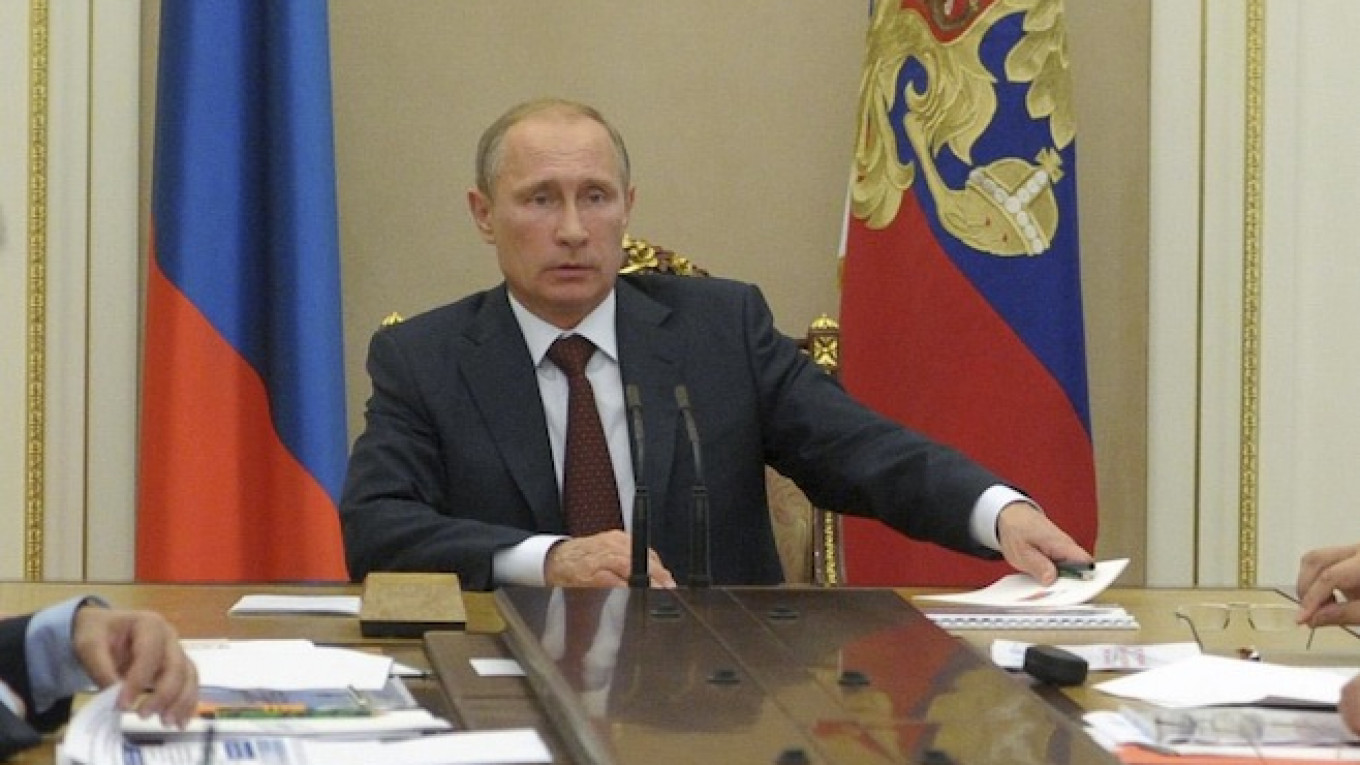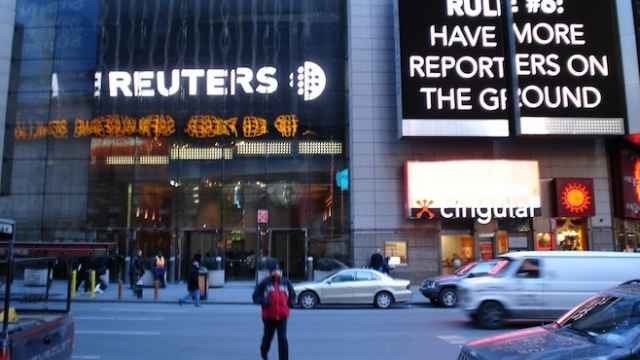President Vladimir Putin said Wednesday that he would not restrict Internet access for Russians but Moscow must protect state domains against a surge of cyber attacks since the Ukraine crisis began.
His remarks were intended to douse speculation that he plans a crackdown on use of the Internet, which he has called a "CIA project" used to organize protests against him, as tensions mount with the West over the Ukraine crisis.
"We do not intend to limit access to the Internet, to put it under total control, to nationalize the Internet," Putin told a meeting of his advisory Security Council, which groups top state, defense and security officials.
"We are not even considering this," he said. "Media freedoms, the right of people to receive and disseminate information — these are basic principles of any democratic state and society. They must be strictly adhered to."
Putin was addressing concerns in Russia and abroad over moves this year to tighten regulation of the Internet in Russia, Europe's fastest growing such market, and fears that he might try to disconnect Russia from the global web in an emergency.
Putin has been particularly wary of the Internet since big protests against him in the winter of 2011-2012 were organized on social networks. Many of his most vocal critics are also bloggers.
Opponents say the Kremlin has used new legislation to block the sites of critics and taken steps to increase the security services' ability to keep tabs on them.
The Organization for Security and Cooperation in Europe, a rights watchdog, has underlined those fears by warning that the Kremlin could use proposals to protect Internet users against threats from the West to silence its critics.
Cyber Attacks
Despite his assurances for Internet users, Putin said Russian security services had detected a sharp rise in cyber attacks, particularly in the last six months, the period in which the crisis in Ukraine has worsened and ties with the West have deteriorated.
"And their intensity directly depends on the current international situation," he said, implying a link to the state of relations with the West, which has imposed sanctions on Moscow over its annexation of Crimea and its support for separatists fighting government forces in eastern Ukraine.
"We need to improve greatly the security of domestic communication networks and information resources, primarily those used by state structures," he said, without saying how Russia planned to do this.
The Kremlin website was briefly knocked out by a cyber attack in March as tensions with the West rose over Ukraine, and the foreign ministry and central bank suffered similar problems the same day.
Nikolai Patrushev, the secretary-general of the Security Council, said there had been more than 57 million cyber attacks on Russian sites in the first half of this year and blamed them on foreign intelligence services, criminals and radical groups he referred to as extremists and terrorists.
"It was connected with events such as Sochi — I mean the Winter Olympics. Then with events such as those in Crimea, and how they were covered, and in eastern Ukraine," Patrushev said.
Russia faced sharp criticism over its record on gay rights and democracy in the run-up to the Winter Olympics and state media have mounted a fierce campaign to counter the West's criticism of Moscow over the events in Ukraine.
A Message from The Moscow Times:
Dear readers,
We are facing unprecedented challenges. Russia's Prosecutor General's Office has designated The Moscow Times as an "undesirable" organization, criminalizing our work and putting our staff at risk of prosecution. This follows our earlier unjust labeling as a "foreign agent."
These actions are direct attempts to silence independent journalism in Russia. The authorities claim our work "discredits the decisions of the Russian leadership." We see things differently: we strive to provide accurate, unbiased reporting on Russia.
We, the journalists of The Moscow Times, refuse to be silenced. But to continue our work, we need your help.
Your support, no matter how small, makes a world of difference. If you can, please support us monthly starting from just $2. It's quick to set up, and every contribution makes a significant impact.
By supporting The Moscow Times, you're defending open, independent journalism in the face of repression. Thank you for standing with us.
Remind me later.






